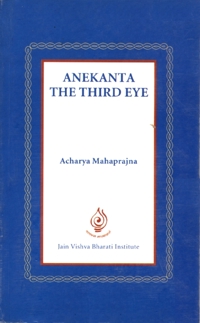
When man just knows, when he is just a knower nothing is liked or disliked by him. Nothing is either beautiful or ugly. Nothing gives happiness and nothing gives unhappiness. Event remains an even mode remains a mode and knowledge remains knowledge. Knowledge is not a modification of an object. Nor is the nature of knowledge the object to be known. The two are different. One is that which is to be studied and the other is knowledge itself. But our doubts have merged knowledge and the object of study. Knowledge takes the form in which the object appears.
The rule of meditational practice is to change this state. To understand the respective places of the object of study and of knowledge. To let knowledge remain in the mode of knowledge and the object in the mode of the object. To not let them touch each other. And that is all the job of meditation. Only so much of transformation is required so as to maintain the role of knowledge as knowledge and the object of study as the object of study, to keep event as an event and the knower as a knower. It is not necessary to do anything more than this. Once this realization occurs then it is not necessary to meditate for two hours. When it has happened that you are able to know an event and not experience it, then meditation brings results automatically. Then whatever you do, you are meditating, walking, eating, sleeping or speaking. There is no need for silence. Silence is restraint on not speaking all the time. Meditation is going on all the time in your life.
Our basic nature is to know, to see. This does not happen in one day. It is not possible for it to happen in one day. We should not think of the impossible as impossible. That which is not possible to do in one day should not be aspired for in that span of time. People think that with LSD everything can be made possible. This is false and one should not live under illusions.
 Acharya Mahaprajna
Acharya Mahaprajna
